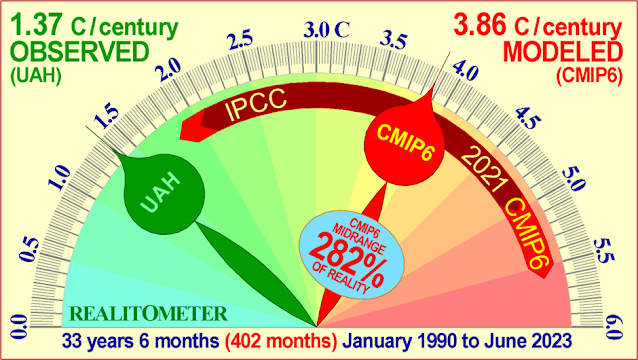Gross Incompetence and Trickery at No Trick Zone

The popular contrarian blog No Trick Zone has made a name for itself for compiling lists of papers that are claimed to demonstrate that some aspect of climate science is all wrong. The papers in these lists generally fall into a few categories: Papers published in junk (pay-to-play) or predatory journals. Papers published in legitimate journals that don't say what NTZ claims they say. Papers published in legitimate journals that do in fact challenge some aspect of AGW. Studies show that papers in the third category total less than 1% of the recent peer-reviewed literature, so you have to wade through a ton of papers in the first two categories to find the one(s) that belong in the third. It used to be when people promoted these NTZ blogposts on social media, I'd go through the trouble of looking up the papers to confirm that the general principle I describe above still holds true. I no longer waste my time with that (Brandolini's Law and all), but occasionally WUWT picks u...


.png)